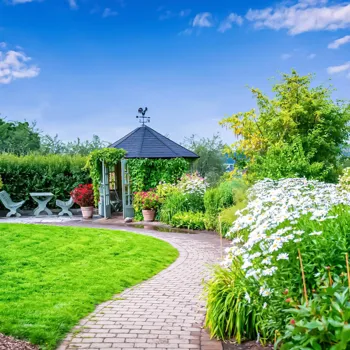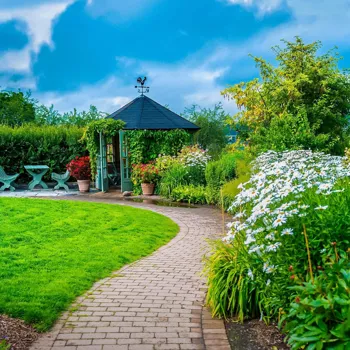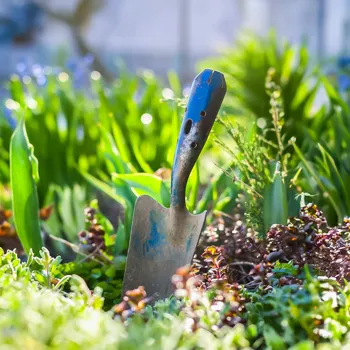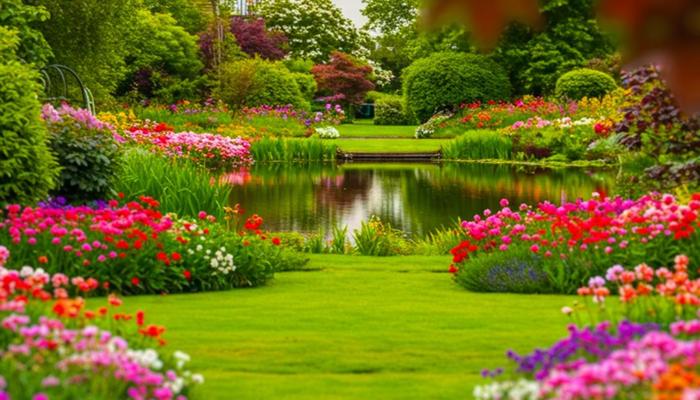Unveiling the Healing Power of Gardening: A Path to Mental Well-being and Joy. Dive into the soil of your mind and soul!
In today's times, life can feel like a non-stop race. Deadlines at work, family responsibilities,
and just keeping up with everything can take a big toll on our mental health. Stress and anxiety have become all too common, leaving many feeling overwhelmed and looking for ways to cope.

But what if the answer was right outside your door, or even on your balcony? Gardening, an activity as old as time, is making a comeback as a powerful tool for improving mental well-being. It's not just about growing plants; it's about nurturing your mind, body, and soul.
Let's dig into why you should grab a trowel and get your hands dirty!
Gardening provides a peaceful escape from the digital world
Gardening offers a welcome escape from the digital world. In our always-connected lives, it's easy to get caught up in social media, news cycles, and constant notifications. Stepping into the garden allows you to disconnect from these stressors and reconnect with nature.

The simple act of planting a seed, watering a plant, or weeding a garden bed can be surprisingly meditative. As you focus on the task at hand, your mind quiets down, and worries fade into the background.
The feel of soil in your hands, the smell of fresh herbs, and the sight of colorful flowers engage your senses and bring you into the present moment. This offers a break from the mental chatter and helps reduce stress.
Gardening reduces stress through nature therapy and creating satisfaction
One of the most significant benefits of gardening is its stress-reducing effects. Studies have shown that spending time in nature can lower levels of cortisol, the hormone your body releases when you're stressed.

Gardening goes a step further, providing both the benefits of nature and the satisfaction of creating something. Tending to plants requires patience, focus, and gentle care. This can be a welcome contrast to the fast-paced, demanding nature of modern life.
The rhythmic movements involved in gardening, such as digging, planting, and watering, can also be calming and therapeutic. The repetitive nature of these tasks can help to soothe the mind and promote relaxation. Its a great therapy we can enjoy.
Gardening boosts mood, fosters creativity, and shares happiness
Beyond stress reduction, gardening can boost your mood and increase feelings of happiness. As you nurture your plants and watch them grow, you experience a sense of accomplishment and pride. Harvesting your own vegetables or flowers can be incredibly rewarding.

Sharing your bounty with friends and family further enhances these positive emotions. Gardening also provides opportunities for creativity and self-expression. You can choose the plants you want to grow, design your garden layout, and experiment with different techniques.
This allows you to tap into your creative side and create a space that reflects your personal style and preferences. Its a source of natural happiness that you can create yourself.
Gardening boosts physical health through gentle exercise, sunlight exposure, and cognitive benefits
Gardening does wonders for your physical health. It's a gentle form of exercise that can improve your strength, flexibility, and cardiovascular health. Digging, weeding, and carrying pots all work your muscles and help you burn calories.
Spending time outdoors also increases your exposure to sunlight, which helps your body produce vitamin D. Vitamin D is essential for bone health, immune function, and mood regulation. Gardening can also improve your hand-eye coordination and fine motor skills.
The act of carefully planting seeds or pruning delicate stems requires focus and precision. This can help to maintain and improve your cognitive function as you age. Its healthy exercise that doesnt feel like exercise.
Gardening is therapeutic, start small with herbs or succulents
Gardening is a skill that can be learned by anyone, regardless of age or experience. You don't need a large garden to reap the benefits. Even a small balcony with a few potted plants can provide a therapeutic outlet. Start with easy-to-grow plants like herbs, tomatoes, or succulents.
As you gain confidence, you can experiment with more challenging varieties. There are plenty of resources available to help you get started, including books, websites, and local gardening clubs. Don't be afraid to ask for advice from experienced gardeners.
They're usually happy to share their knowledge and enthusiasm. There are many resources available for free to learn.
Gardening fosters community connections and relationships
Gardening also connects you with your community. Joining a local garden club or volunteering at a community garden can provide opportunities to meet new people who share your interests. Working together on gardening projects fosters a sense of camaraderie and belonging.
You can also share your gardening knowledge and experiences with others, helping to inspire them to take up this rewarding hobby. Giving away extra produce or flowers from your garden is a great way to brighten someone's day and spread a little joy.
Gardening is a way to connect with others and build strong relationships. Its a way to be a part of local society.
Gardening enhances well-being and connection to nature
In conclusion, gardening is much more than just a hobby; it's a powerful tool for enhancing your mental and physical well-being. It offers a welcome escape from the stresses of modern life, promotes relaxation, boosts your mood, and connects you with nature and your community.

So, why not give it a try? Grab a trowel, get your hands dirty, and discover the many benefits of gardening for yourself. You might be surprised at how much joy and fulfillment you find in nurturing the natural world.
AI Generated Content. Glance/InMobi shall have no liability for the content











